I don’t know about you, but when I hear the word “networking,” I think of LinkedIn.
LinkedIn is the world’s largest professional networking platform, with more than 1 billion users in more than 200 countries and territories worldwide.
Like many of you, I’ve turned LinkedIn into my go-to digital Rolodex, connecting with colleagues past and present and keeping my contacts up-to-date.
However, like any social network, LinkedIn has its downsides.
With so many people on LinkedIn, it can sometimes feel a bit impersonal, and content in the feed isn’t always hyper-relevant.
On top of this, I’ve noticed an uptick in spam on the platform, with an influx of unsolicited direct messages from people trying to sell me things.
Now, I’m not about to ditch LinkedIn – and I’m not suggesting you should, either.
But there’s a whole other world out there beyond LinkedIn that’s worth exploring for professional networking.
Let’s dive in.
Who Can Benefit From A Networking Platform?
Just about anyone looking to give their professional life a little boost can benefit from a networking platform – whether you’re a new graduate just starting out, a professional seeking growth, a freelancer or entrepreneur hoping to network, or just anyone looking for a professional community.
For digital marketers specifically, networking sites are a treasure trove of insights, trends, and potential partnerships.
While SEO experts might find them useful for finding new tools, swapping strategies, or staying abreast of algorithm changes, social media pros might use them to connect with like-minded individuals or uncover new content approaches.
Basically, anyone who works online can make use of networking platforms to gain industry knowledge, create meaningful connections, and fuel professional growth.
So, whether you aim to boost your personal brand, seek out collaborations, or look for your next big opportunity, these platforms are your go-to.
Without further ado, here are 12 awesome alternatives to LinkedIn to check out in 2024.
1. Meetup
-
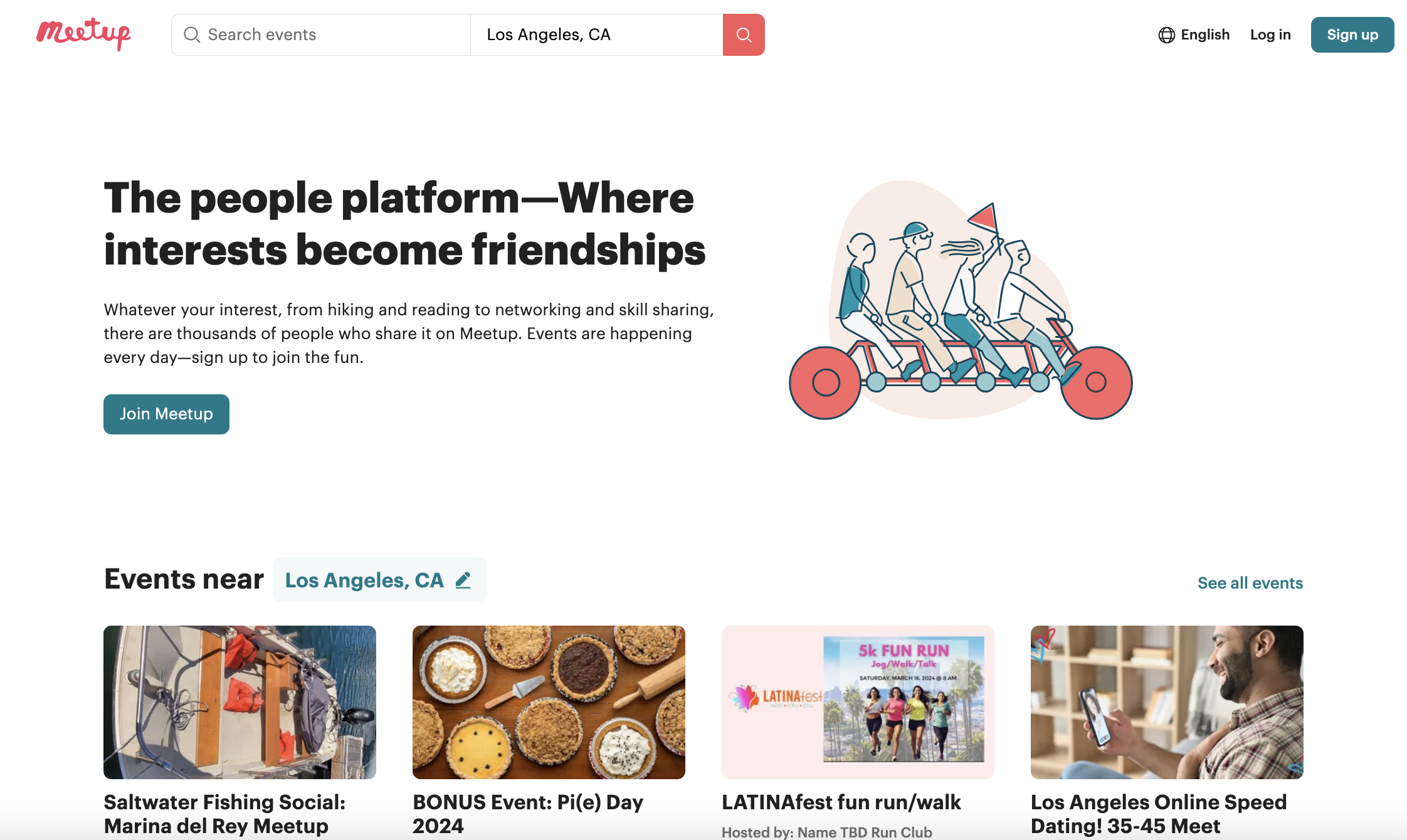 Screenshot from Meetup.com, March 2024
Screenshot from Meetup.com, March 2024
Meetup is a cool platform that allows you to seek out (or create) local meetups with like-minded folks – and it’s a great platform for anyone looking to blend online connections with real-world interactions.
When you register for Meetup, you’ll select your interests (whether personal and/or professional).
From there, Meetup will notify you of any local meetups you might be interested in, as they are created.
The meetups span a wide variety of topics, from in-depth SEO workshops to social media strategy sessions, not to mention casual networking mixers.
-
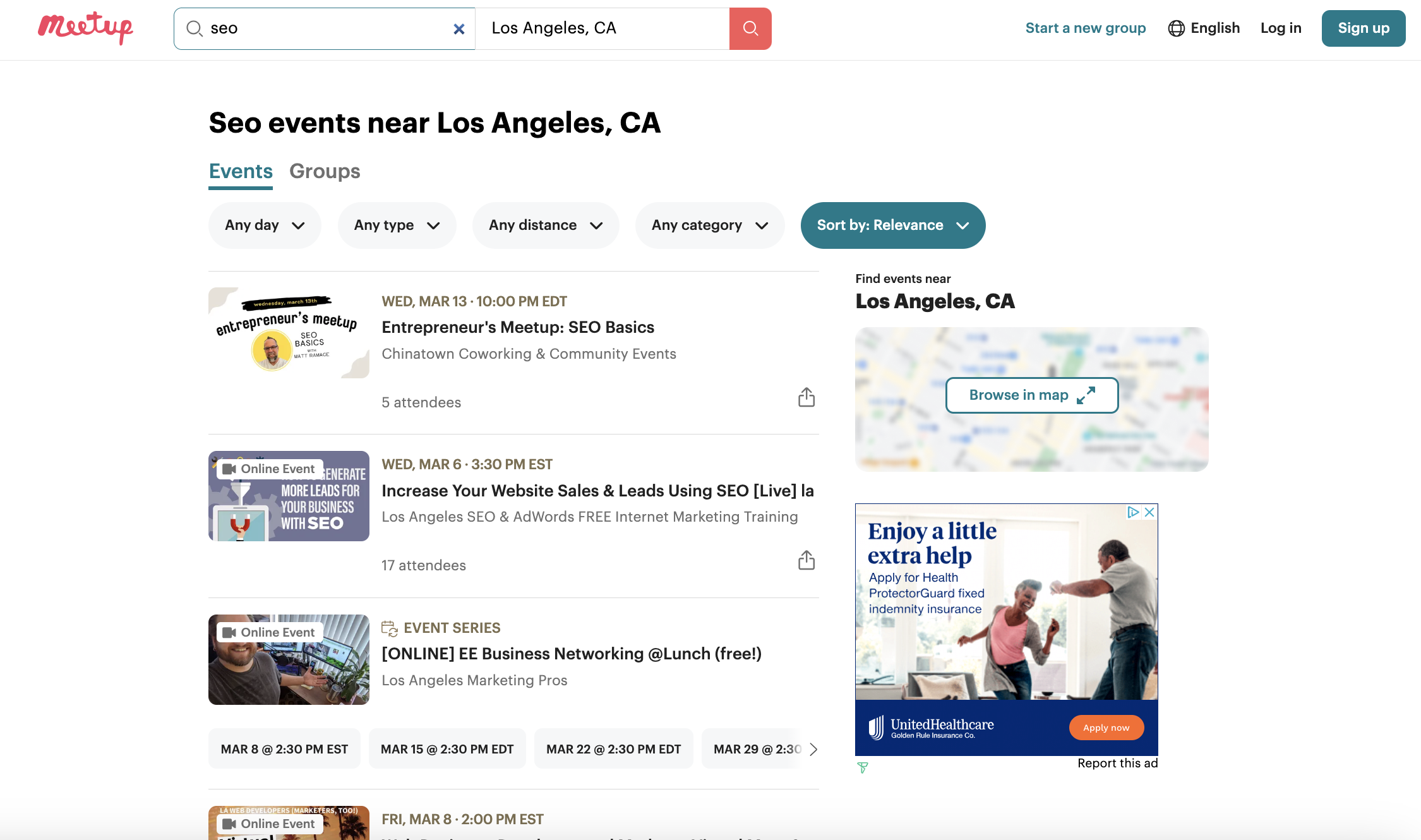 Screenshot from Meetup.com, March 2024
Screenshot from Meetup.com, March 2024
If you don’t see anything that interests you or works with your schedule, you can create your own event. Meetup will notify anyone who has identified your topic as of interest to them.
To be successful, make your Meetup group or event stand out by choosing a catchy title and providing a clear, engaging description that lets people know what to expect and why they might want to join.
Remember, this platform is all about bringing people together, so the more you can offer in terms of learning, networking, or just plain fun, the better.
It’s a great way to bring like-minded people together locally, and a great option if you’re looking to deepen your knowledge, expand your professional network, or just further explore your passions.
2. XING
-
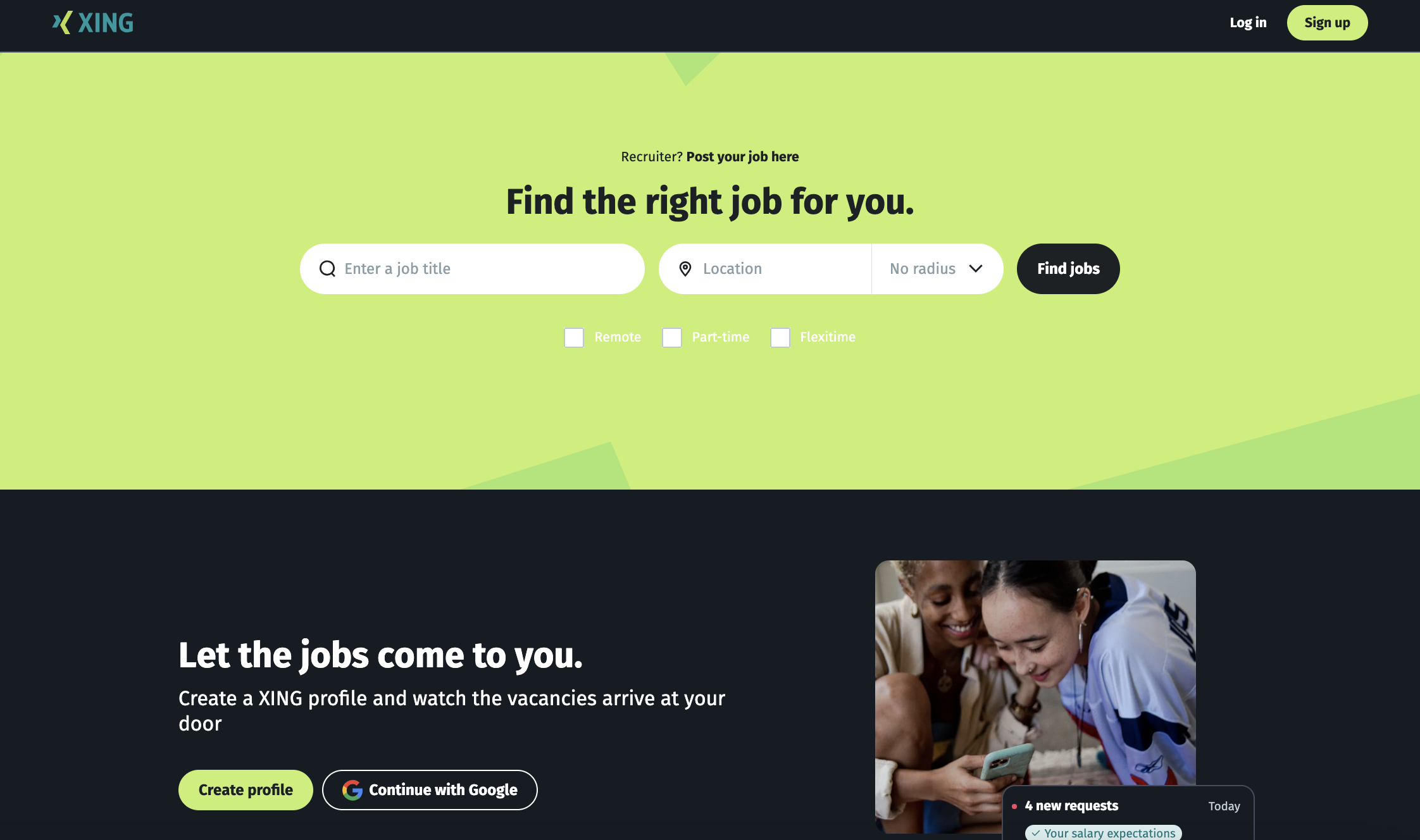 Screenshot from Xing.com, March 2024
Screenshot from Xing.com, March 2024
Think of XING as a kind of Europe’s answer to LinkedIn. The professional network, which boasts over 21 million members, offers a unique space for industry professionals to converge and expand their communities.
Currently, XING is particularly beneficial for those looking to work within European markets or with European countries, as it’s much more prominent in Europe than in the U.S. However, it’s used by people in over 200 countries, so don’t discount its power and potential, no matter where you are.
Upon joining XING, you have the ability to tap into a massive professional network. Join group chats with like-minded professionals to network and share ideas; identify relevant seminars, conferences, and tradeshows you may want to attend; or post jobs, search jobs, and research companies.
With over 20,000 recruiters on the platform, it’s particularly powerful for job seekers.
One unique feature XING offers is its culture compass, which offers insights into the work culture of potential employers. This can be super helpful during the job search phase.
To make the most of the platform, make sure your profile is complete and up-to-date with your skills and experience, actively participate in groups and discussions, utilize job alerts, and leverage the Culture Compass.
It is free to use, but similarly to LinkedIn, a paid premium membership unlocks additional features, such as searching for people with specific qualifications or messaging unknown contacts.
3. Bark
-
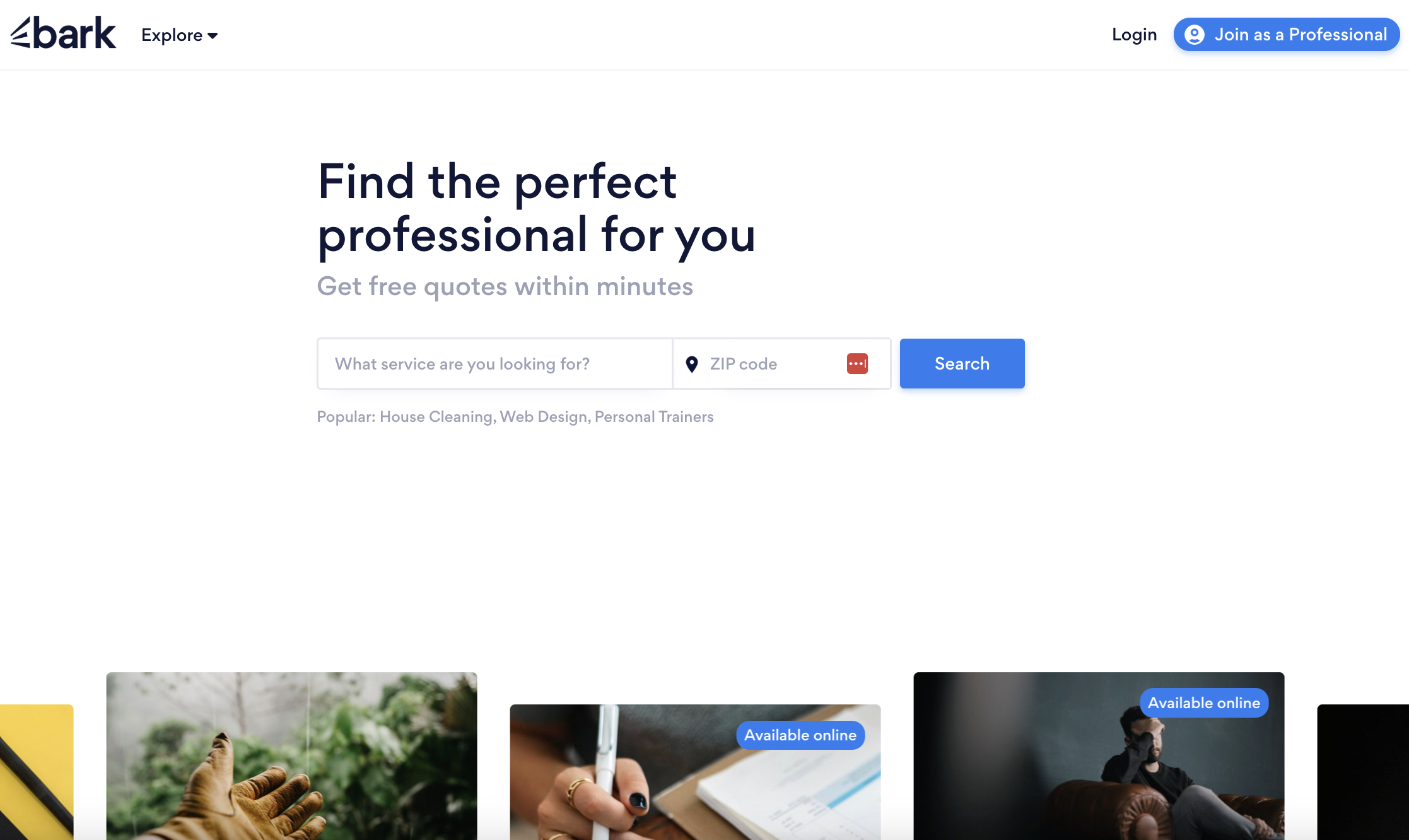 Screenshot from Bark.com, March 2024
Screenshot from Bark.com, March 2024
Bark, which bills itself as “the Amazon of services,” is designed to connect local professionals with potential clients seeking their services.
It offers a network of over 180,000 active suppliers across eight sectors and connects over 4.5 million buyers and sellers annually.
Are you looking for professional assistance?
Bark will reach out to professionals in your area and circle back with estimates. Even more valuable, if you’re looking to find customers for your business, you can set up your own profile and be paired with prospects who are seeking out similar services.
It caters to a broad range of business needs, from accounting to personal training, web design, SEO, house cleaning, and more.
-
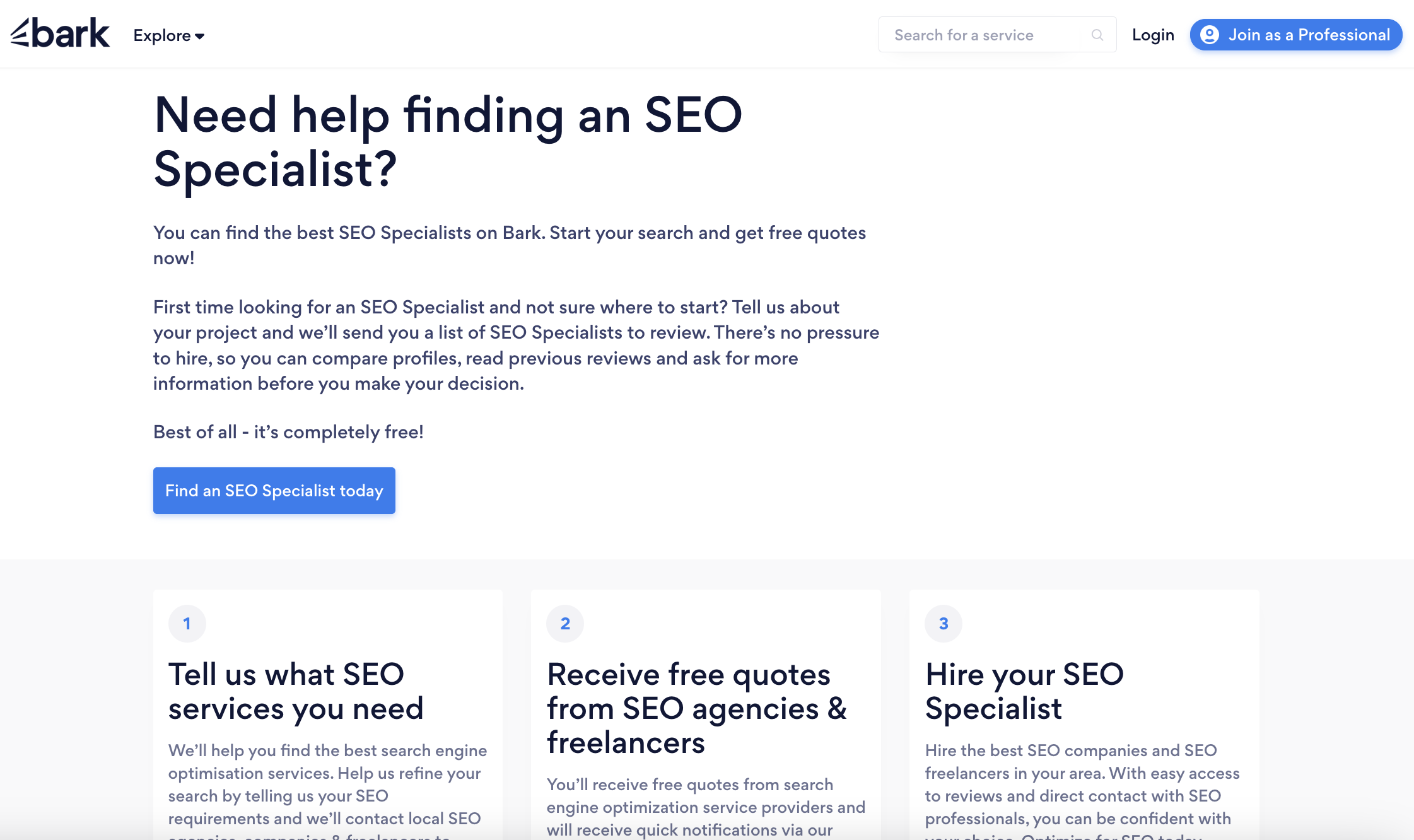 Screenshot from Bark.com, March 2024
Screenshot from Bark.com, March 2024
It’s free to create a profile and browse leads, but Bark requires you to purchase credits in order to actually contact clients – and the fees vary based on job scale and value.
After you purchase a lead, you can immediately access their contact details.
It’s worth noting that Bark doesn’t vet the professionals on its platform, so be sure to exercise caution and do your due diligence when making connections.
To get the most out of Bark:
- Set your lead preferences actively to ensure you only receive notifications for jobs that make sense for your business.
- Engage promptly with potential clients once you’ve purchased a lead.
- Make sure to maintain a detailed, up-to-date profile.
4. Opportunity
-
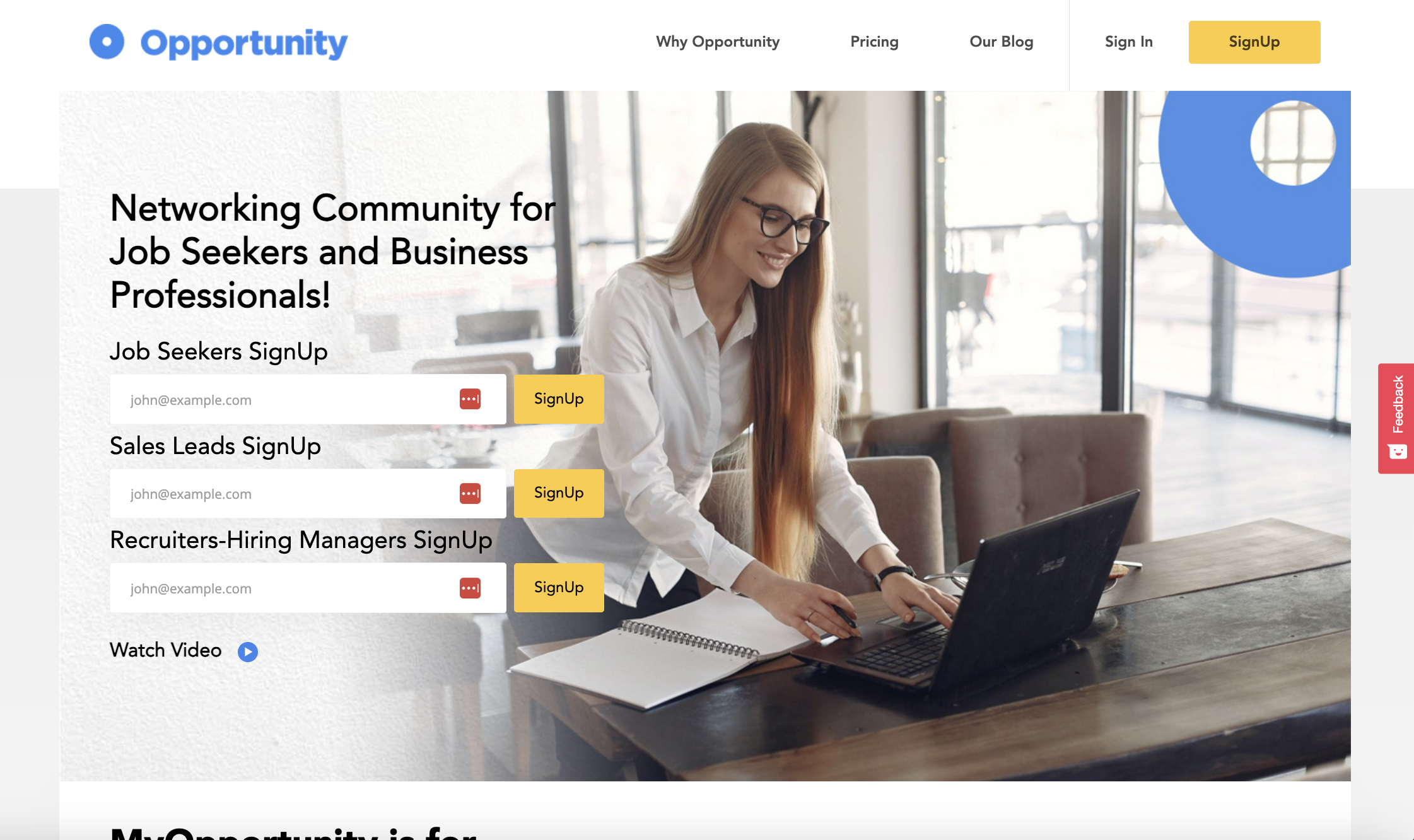 Screenshot from MyOpportunity.com, March 2024
Screenshot from MyOpportunity.com, March 2024
Opportunity is a networking site that prides itself on “professional matchmaking” – or connecting people based on their specific professional needs and criteria. It has millions of members in 190+ countries.
It’s particularly effective for those looking to build networks and business relationships, find job opportunities, generate sales leads, or hire talent.
Users can be notified each time someone in their target market indicates that they need what said user offers. Likewise, they can be notified of relevant employment opportunities, or discover other professionals based on their preferences (e.g., age, gender, interests, etc.)
By creating a profile, you can be directly matched with relevant leads. You can choose from one of five profile types in order to streamline your experience:
- Build your network and business relationships.
- Find jobs and career opportunities.
- Meaningful relationships.
- Turbo-charge your sales lead generation.
- Hire the best talent out there.
The Basic membership is free and offers many core capabilities. Alternatively, you can upgrade to a PRO membership for $29/month, offering features like unlimited messaging, unlimited search radius, and a stronger AI matching algorithm.
5. Jobcase
-
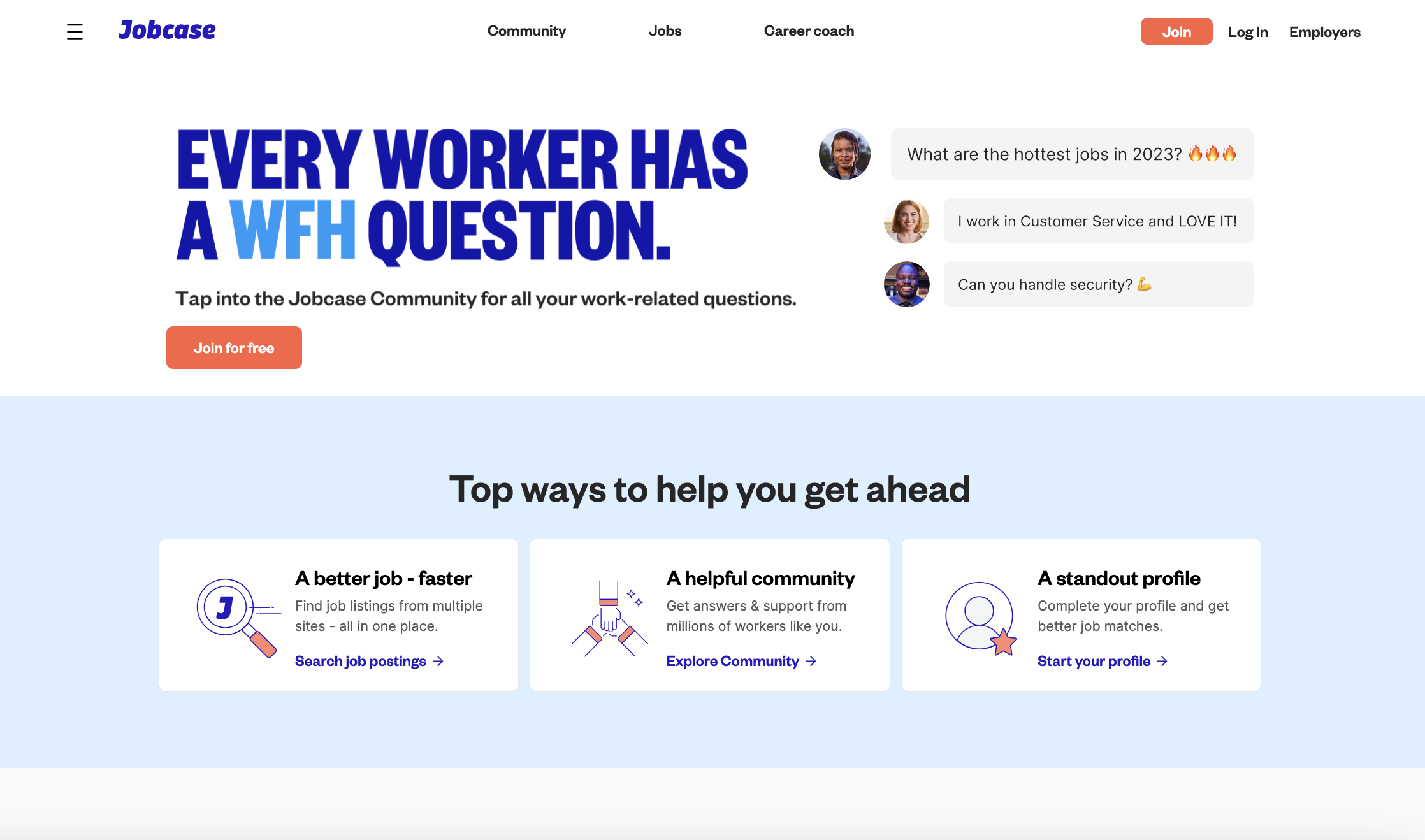 Screenshot from Jobcase.com, March 2024
Screenshot from Jobcase.com, March 2024
Jobcase describes itself as “an online community dedicated to empowering the world’s workers.”
It’s a pretty unique platform that has been powering over 100 popular job sites since 2009. Because of that, Jobcase has access to a wealth of data about open roles and the companies currently hiring for roles you might be interested in.
So, how does it work?
With Jobcase, you can set up a profile and get access to a huge database of jobs. Plus, you can join groups or peruse the community to participate in discussions. Jobcase boasts over 120 million users, so there are plenty of discussions to join in on!
The site offers community engagement opportunities, as well as tons of resources for job seekers.
To make the most of Jobcase, be sure to actively participate in discussions relevant to your field. Also, seek advice from seasoned experts and regularly update your profile.
6. Community Forums
-
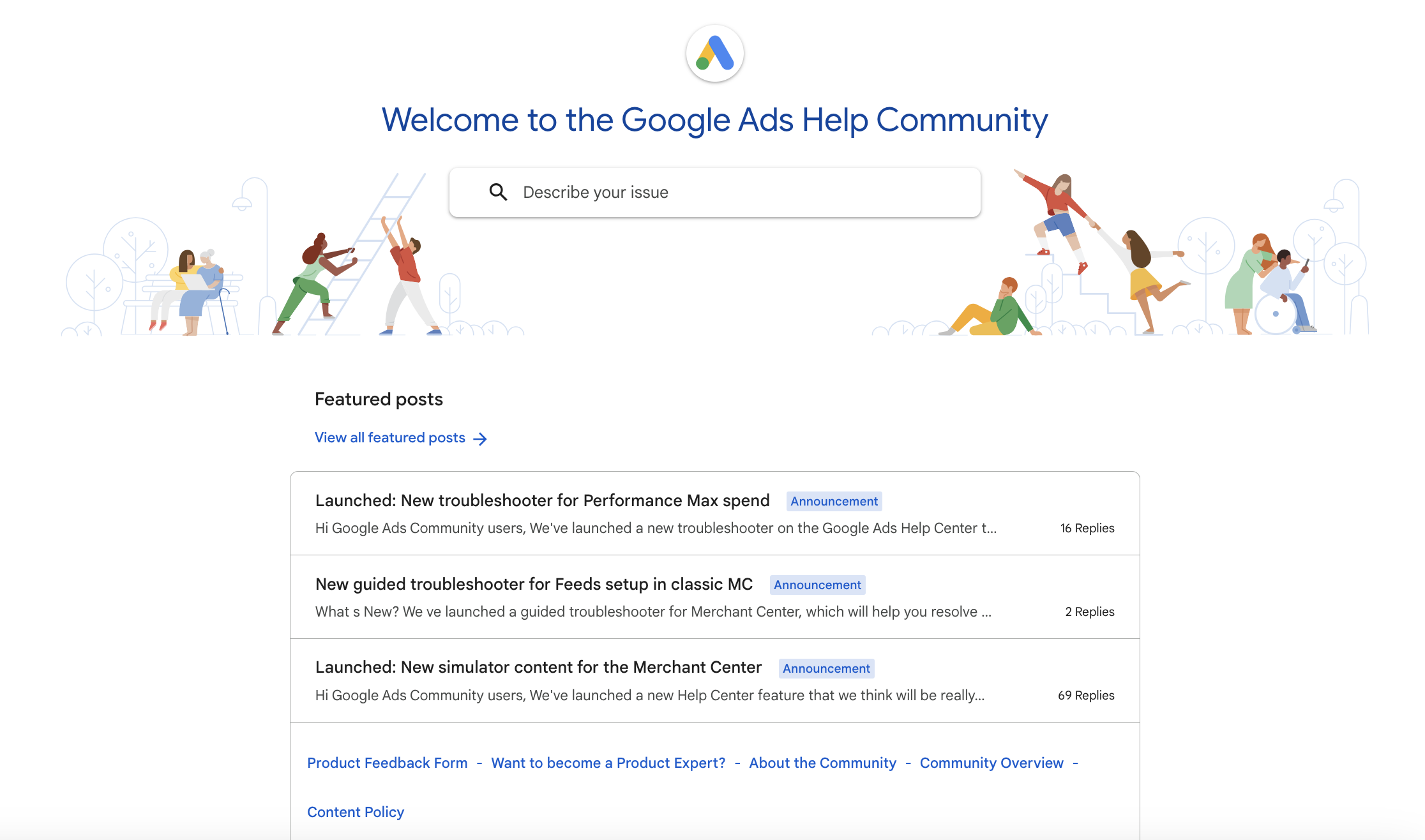 Screenshot from support.google.com, March 2024
Screenshot from support.google.com, March 2024
Some of the most valuable, and yet most often overlooked, networking opportunities are in community forums.
They cater to a diverse audience of professionals depending on your niche and the forum itself – and there’s a forum for almost anything!
Interested in Google Ads? Check out the Google Ads forum.
Are you curious about Bing Ads? Check out the Bing Ads forum.
Not so much interested in ads? The Google Webmaster Central Forum might be more your speed.
And these are just a few examples of the countless community forums out there.
These forums are a great way to ask questions and share your experience with others who are seeking input. The forums stay active and are frequented by many knowledgeable people.
To maximize the potential of community forums, go out of your way to contribute with questions or share your own expertise. Engaging in these spaces can deepen your knowledge and expand your network.
Remember, the key is to provide value and interact genuinely with fellow members.
7. X (Twitter)
Believe it or not, some of the best industry networking that I’ve been privileged to stumble upon has come from some really great X (formerly Twitter) communities!
Engaging in industry-specific hashtags, threads, Communities, and Spaces can be a powerful way to network and learn on the platform.
-
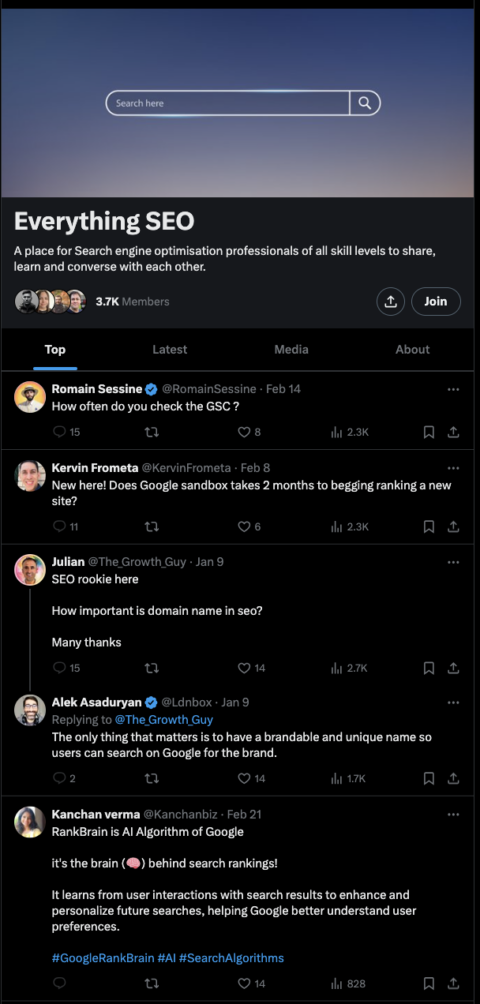 Screenshot from X, March 2024
Screenshot from X, March 2024
The especially great thing about these is that they are public, free, active, and can be really supportive.
New members are welcomed, and people are encouraged to share their questions and struggles. Plus, it’s just fun to talk shop with others who get it.
I’ve made a lot of lasting connections on X, which have led to a variety of career opportunities, from speaking at industry events to client referrals and more
Historically, digital marketers could find relevant content on #SEOchat, #SEOtalk, #SEMrushChat, #HootChat, #SproutChat, #socialROI, and #contentwritingchat – just to name a few. It’s also worth looking for Communities and Spaces that center around your areas of interest and expertise.
Stay active, contribute positively, and harness the collaborative spirit of these communities for potential career growth and knowledge exchange.
8. Reddit
-
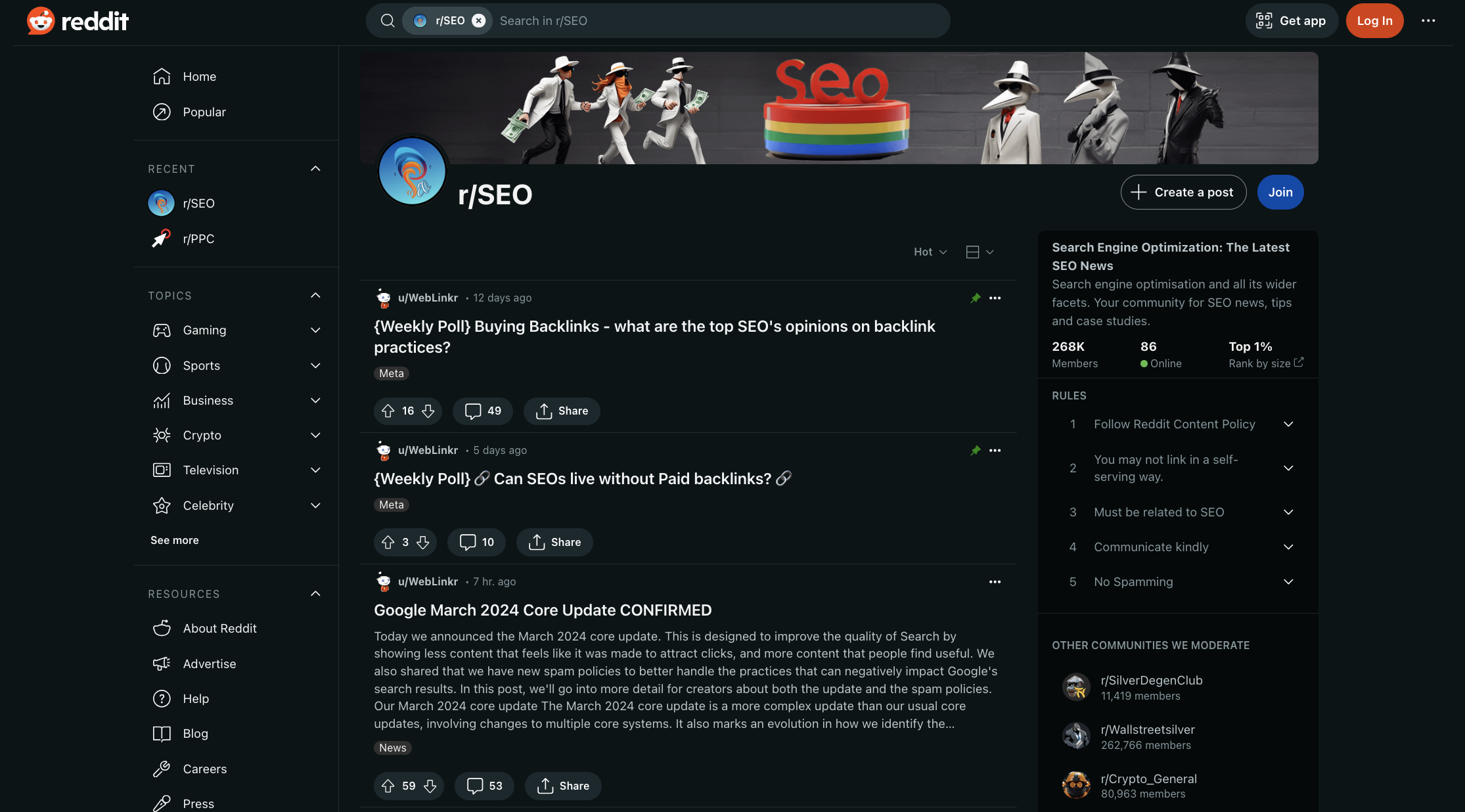 Screenshot from Reddit.com, March 2024
Screenshot from Reddit.com, March 2024
Although Reddit has a strong reputation for being the source of many-a-meme, it’s also so much more than that.
Reddit hosts over 10,000 active subreddits – a huge span of micro-communities – including r/PPC for paid search and r/SEO for, you guessed it, SEO.
Whether you’re interested in content marketing, digital advertising, or web development, there’s at least one subreddit catering to your needs.
The subreddits are completely free to join and public to peruse – and by signing up for a free Reddit account, you can engage with existing posts or start your own discussions.
In this way, it’s a powerful tool for staying updated with industry trends and connecting with peers.
Success on Reddit is all about engaging with others. Just make sure you’re providing value and following the rules of each subreddit, as Reddit users can be sticklers about that.
9. Slack
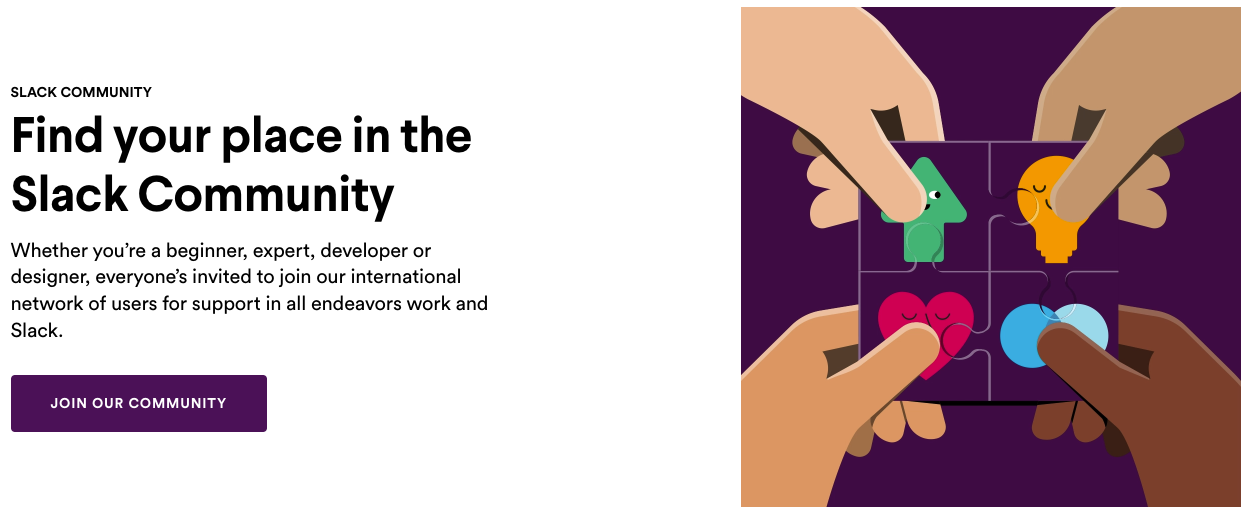 Screenshot from Slack, March 2024
Screenshot from Slack, March 2024Slack has evolved past its role as a simple workplace communication tool; there are now many Slack communities for networking purposes and beyond.
On the other hand, it can be quite distracting. With the exception of Lunchmeet, almost every other networking community in this list is browser-based.
In case you haven’t heard of it, Slack is a messaging app that brings people together in unique private communities to exchange information.
Each community has a mix of public threads, smaller private channels, and the option to DM anyone else in the community.
So, if you find yourself distracted by instant messages and mobile/desktop notifications, Slack might not be the best place for you.
That said, I’m a fan; I’ve joined some great communities, met great people, and even created working relationships – all through Slack.
Communities on Slack can range widely in focus, allowing for targeted networking and discussions in your field of interest.
If you’re interested in finding a Slack community, a quick Google search for [Insert Topic Here’ + Slack Community] usually turns up several options.
It’s also easy and free to create your own Slack community and invite your friends.
10. Facebook Groups
-
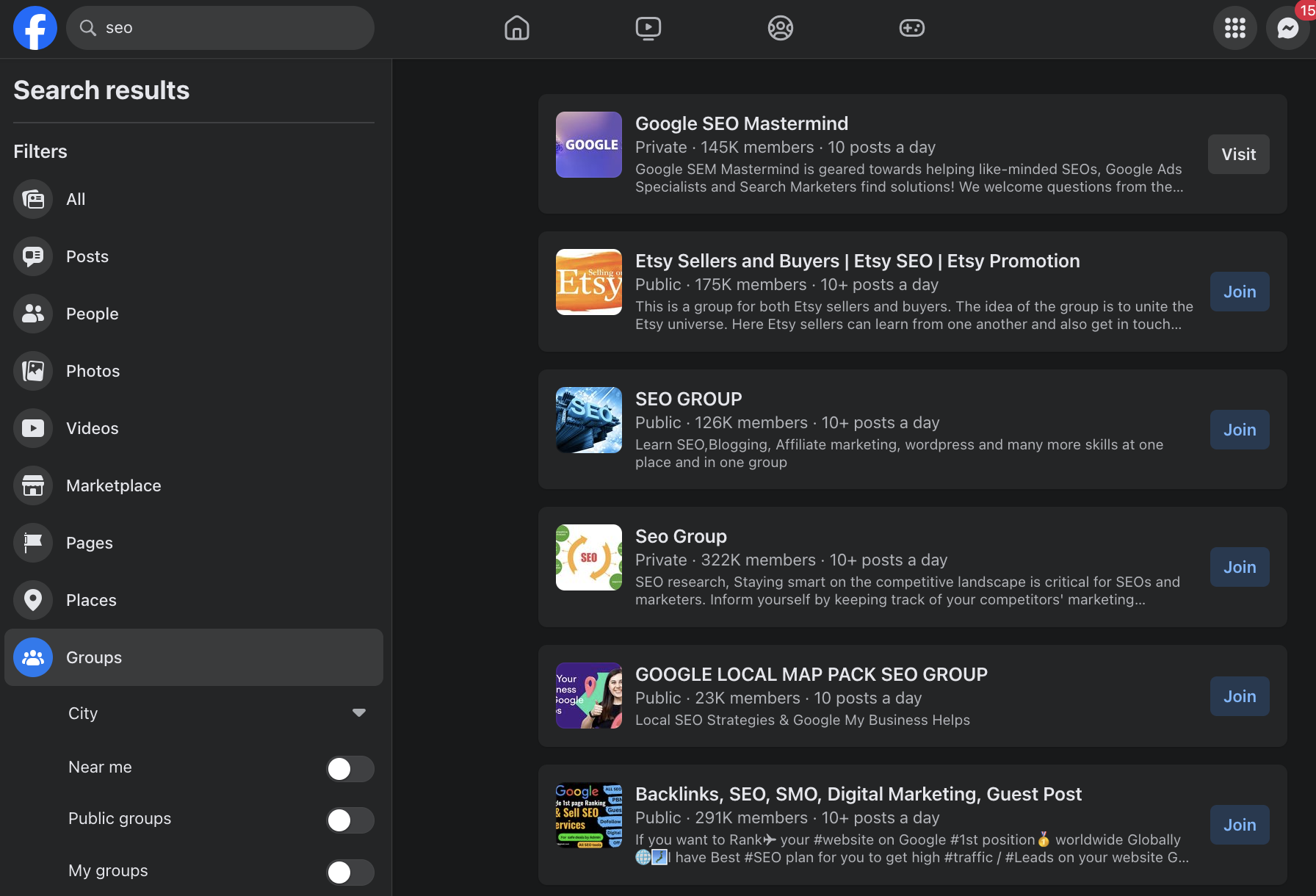 Screenshot from Facebook.com, March 2024
Screenshot from Facebook.com, March 2024These days, there are plenty of Facebook groups dedicated to sharing professional knowledge and experiences – some with thousands of active members.
Although Facebook was once considered more of a personal social platform than LinkedIn, it can be a great source for professional networking.
If you’re interested in seeking out a community, you can use Facebook’s search tool to find groups about your topic of interest. You’ll find a mix of large public groups and more intimate private groups.
There are several communities that cater to various aspects of digital marketing from tactical knowledge all the way to running a digital agency.
To make the most of them, spend time actively participating, sharing relevant content, and connecting with other members of the community.
11. Sumry
-
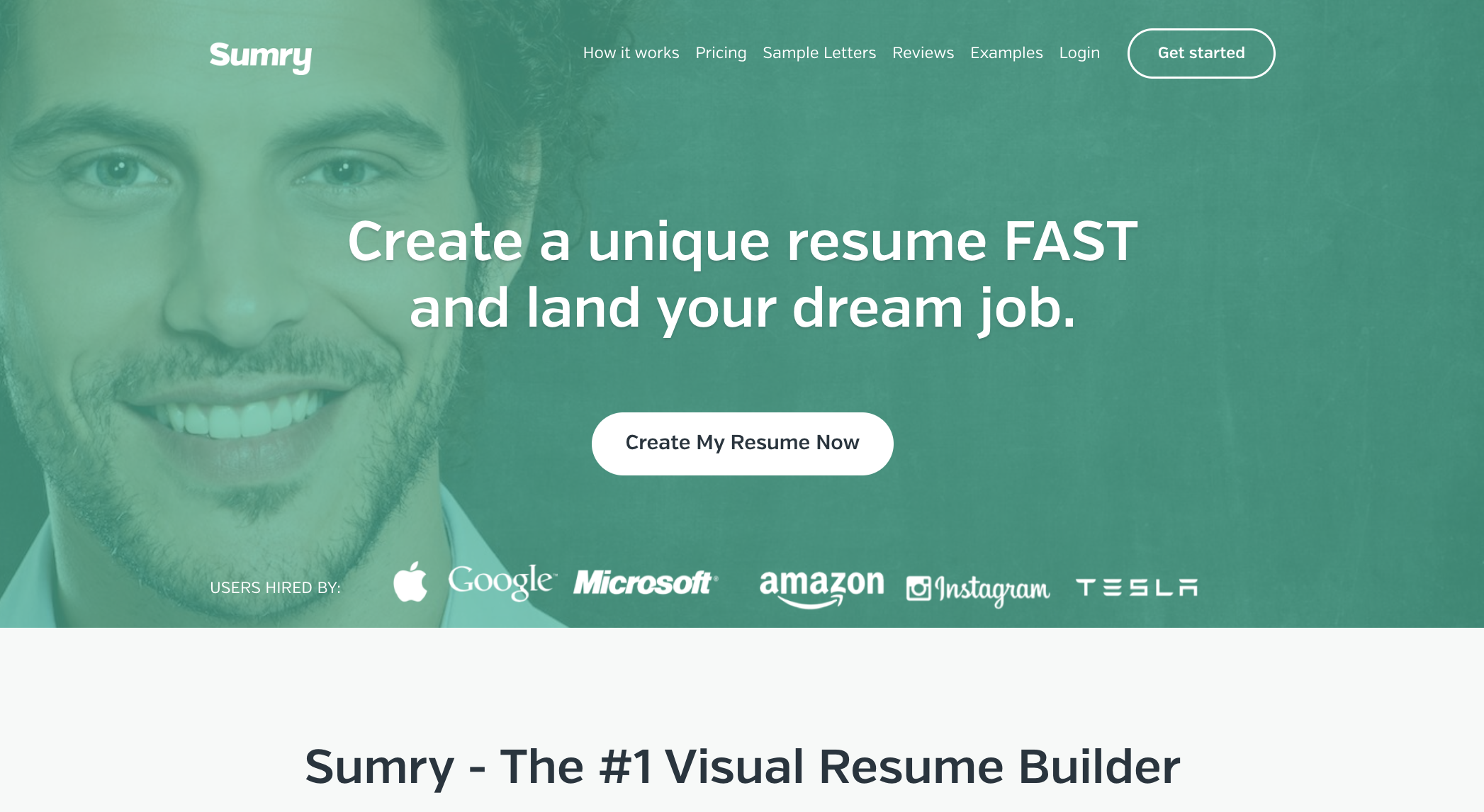 Screenshot from Sumry.me, March 2024
Screenshot from Sumry.me, March 2024
Sumry is a site that was built to make first impressions easier and bring a more personal side to the job search process. It describes itself as “the human way to get hired.”
It’s a web app that enables you to build innovative, interactive resumes and website portfolios that employers on the site can view.
Sumry allows you to aggregate your certifications, skills, and work experience, as well as testimonials and your full timeline of work experience, and creates a one-page resume and website for you.
What sets Sumry apart is its emphasis on storytelling and crafting a narrative around your personal brand.
For the best results, add depth to your profile with testimonials from former clients or colleagues. Use the platform to build an interesting story about your professional journey rather than just a list of work experiences.
Once you are ready to submit, Sumry makes it easy to apply with one click with a link to your profile and a PDF of your resume.
With the premium version, it also gives users a chance to introduce themselves before submitting an application.
Sumry comes with a 7-day free trial – after that, it’s $79 per year.
12. Gust.com
-
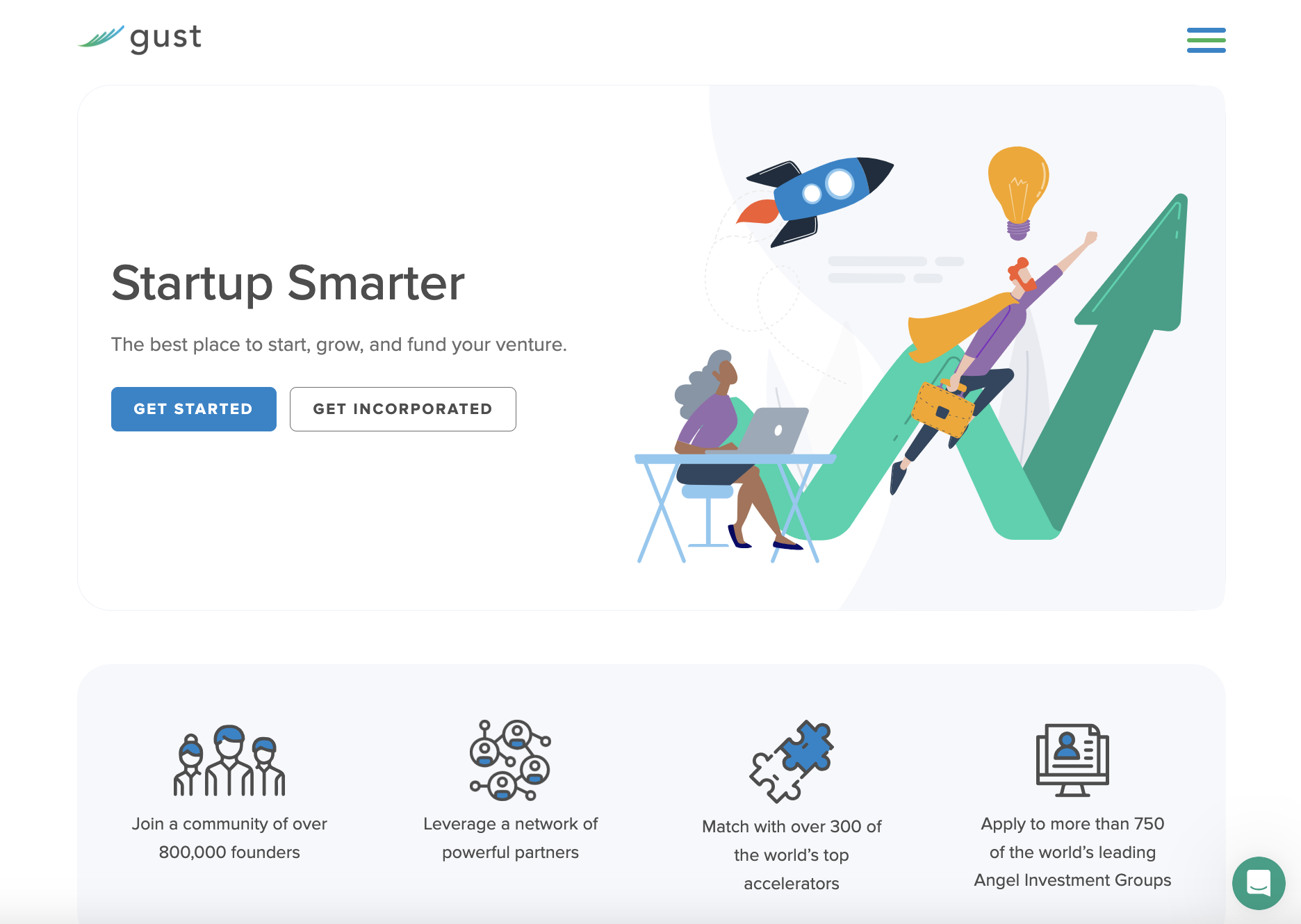 Screenshot from Gust.com, March 2024
Screenshot from Gust.com, March 2024
This one is a little more niche and specific.
Gust is a community focused solely on startups; in fact, it claims to be the world’s largest community of entrepreneurs and early-stage investors.
According to its website, Gust boasts a community of over 800,000 founders and the ability to match with 300+ of the world’s top accelerators.
So, what is Gust?
It’s a global SaaS funding platform that powers the sourcing and management of early-stage investments for startups.
It provides entrepreneurs with tools to help them start, operate, and raise money for companies, enabling them to collaborate with both investors and angel investor networks.
To get the most out of Gust as a networking platform, use its capabilities to rate and review companies, find promising startups, or engage with potential investors and partners. Engage with the community, attend office hours, and participate in expert sessions.
Beyond this, make sure to create a strong public profile for your startup, craft a compelling presentation for investors to review, and provide relevant supporting documentation.
You can get going with a START plan for $450/year.
How To Get The Best Out Of Networking Platforms
LinkedIn might be the largest professional networking platform in the world, but it is far from the only one.
There are plenty of other networking platforms out there that exist to help you make meaningful connections – many of them offering unique features like direct connections with founders, niche community engagement opportunities, and tailored job opportunities.
In fact, some of these alternatives may be more useful to you than LinkedIn, given their focus on catering to specific locations or niches.
To get the most out of networking platforms generally, you should:
- Seek out platforms that align with your industry, interests, and professional goals.
- Make an effort to actively engage and contribute to discussions to build credibility.
- Prioritize providing value to others to establish genuine relationships.
- Leverage unique platform features to highlight your skills and interests.
Diversifying your networking approach can help you find new opportunities and communities that resonate with your career objectives, and lead you to richer, more fruitful professional relationships.
More resources:
Featured Image: Ground Picture/Shutterstock
-
